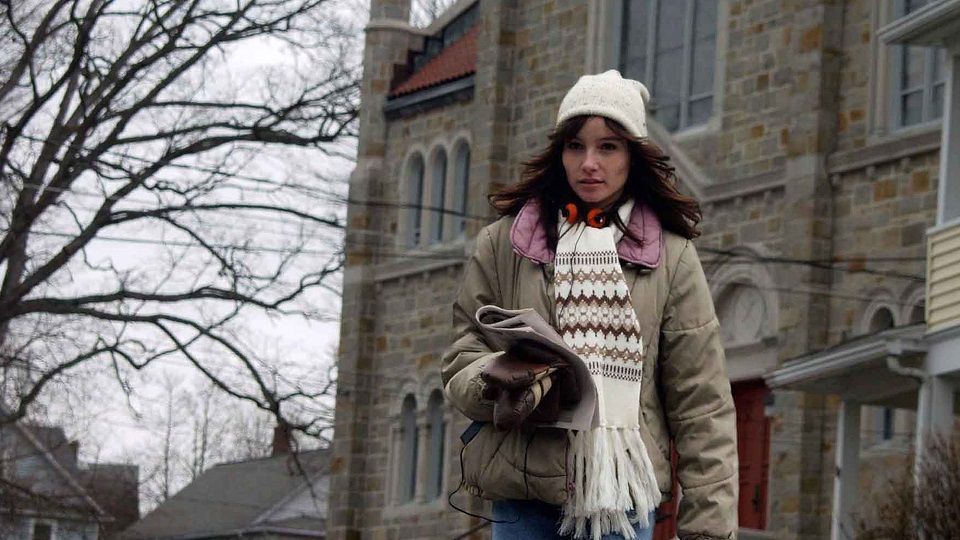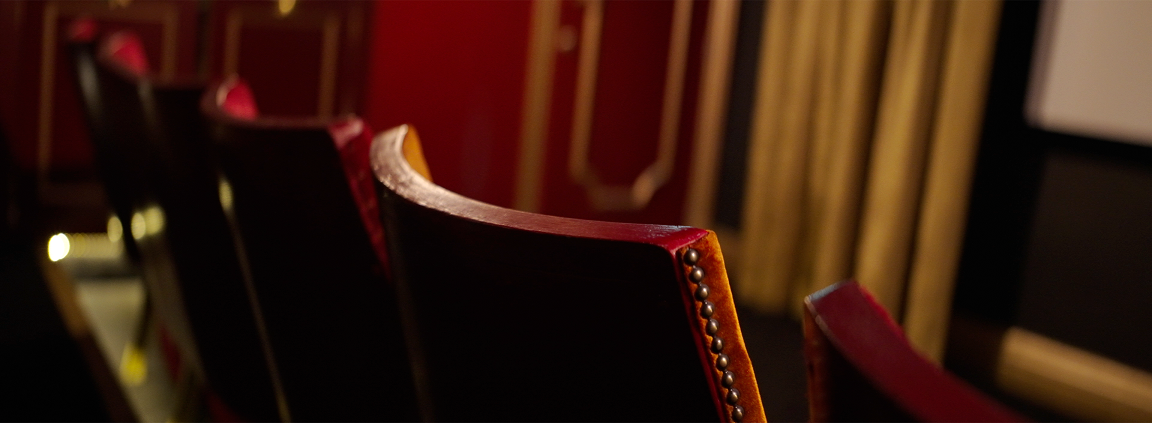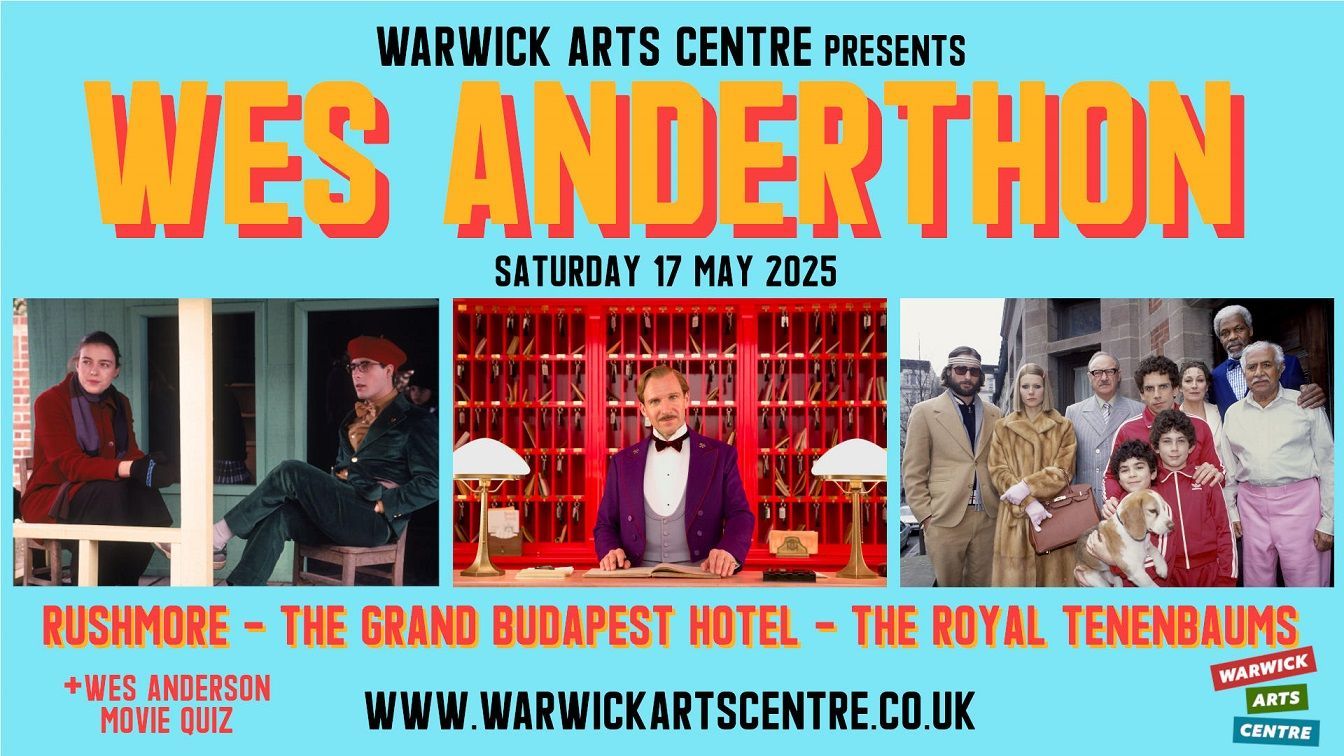Fright-fully good terror pleasures at Paracinema 2024 (part 2)
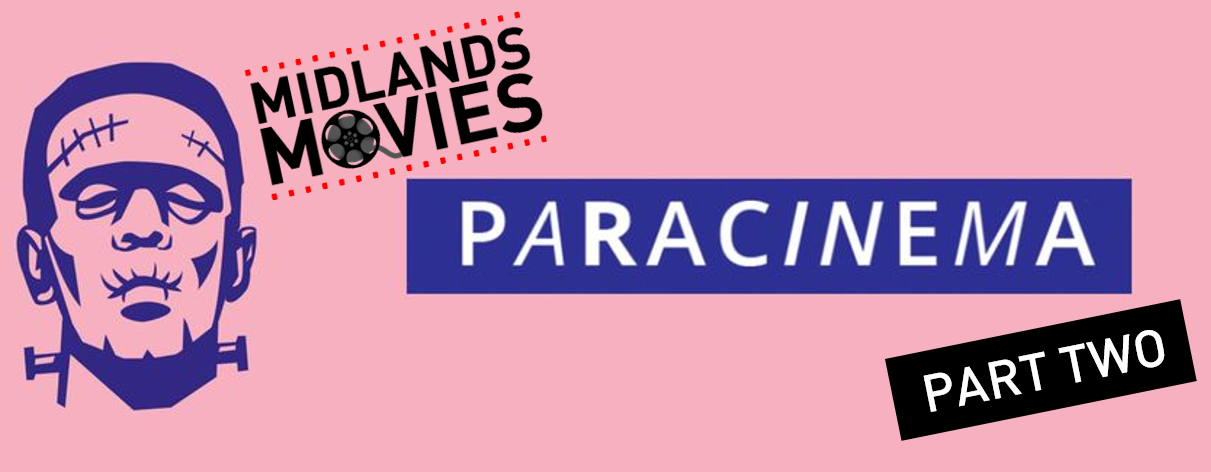
The unwieldy wordcount of my Part One review of Paracinema meant that I missed out details of one talk, which took place on the second day. And I must include something on it, as Editor Mike is a huge Star Wars fan – he’s even written in defence of The Phantom Menace - and the festival was running over the May 4th weekend.
Taking a tongue-in-cheek look at the host of rip-offs that flooded the market after the release of Star Wars in 1977, film historian Darrell Buxton regaled the audience with tales of Hardware Wars, Battlestar Galactica and, ahem, Turkish Star Wars. It was a light and very funny talk, but not without its nuggets of information. It was fascinating to see how quickly producers jumped on the science fiction trend once Star Wars had released, and how close to the copyright lines they moved to get their films made.
Of course, we couldn’t talk about Star Wars without looking at the films that George Lucas lifted from to create it, and Darrell was sure to shout out Kurosawa’s The Hidden Fortress, Anderson’s The Dam Busters, and the serials of Flash Gordon and Buck Rodgers.
Back to the features, and day three of Paracinema provided a host of British made features, starting with Dan Gould’s Interlopers. This low budget zombie thriller is split into three parts, each taking influence from classics of the genre but all coming together in a cohesive way. This is more impressive given that it was shot over a three-year period, with each part treated as a separate production – the bulk of the second part being shot in Derbyshire, while the rest was filmed around Manchester.
Working with the Farewell Theatre Company, Gould is lucky to have an excellent cast on hand and while the story – involving big pharmaceutical companies zombifying the population to bring about the next stage of evolution – is convoluted, it’s delivered in a way that keeps you engaged. Credit should also be given to the crew, who manage to maximise the low budget to create a credible dystopian world.
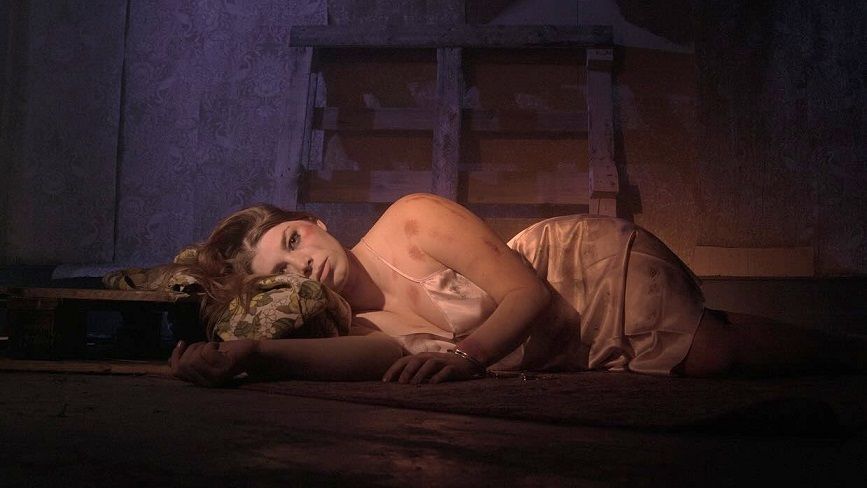
Tom Lee Rutter’s The Pocket Film of Superstitions was up next, which I’ve already reviewed here. Needless to say, it was great to see this inventive horror flick on the big screen. Also reviewed separately is Jordan Kane-Lewis’ white-knuckle thriller Nothing Goes, which kept the audience on the edge of their seats for the 50-minute runtime.
Rounding out the day of British features was Michael Fausti’s Burnt Flowers; an ambitious thriller spanning three different time periods as Detective Franc Alban’s (Amber Doug-Thorne) investigation into a missing person puts her on the trial of a 1960’s serial killer and a notorious London gangster (Fausti) who has just escaped from prison.
Fausti’s creativity is clear to see, and he manages to differentiate the time periods clearly and distinctly. In fact, it’s clear that the 60s sequences are where most of the attention has gone, as these stand out from the rest of the film. Fausti noted that he was inspired by the unsolved ‘Jack the Stripper’ killings that took place in 1960s London, but stylistically the murders on screen owe more to Powell’s Peeping Tom, and perhaps Hitchcock’s Frenzy – shot from the point of view of the killer to keep their identity a secret from the audience. Unfortunately, the modern parts feel lacklustre in comparison. Doug-Thorne is good in the lead role, but is given very little agency, instead being buffeted between various other characters, and often finding herself in her underwear, in the middle of another lesbian tryst, but without any plot armour or chemistry to justify it.
The last day of Paracinema kicked off with its biggest round of short films. The Darker Horizons programme was a varied selection, kicking off with The Dead of Winter, from Stephen Graves. This was a neat little morality tale, with good performances from the cast, which maximises the impact of its runtime, even as it does nothing new with it. Leaning more into comedy was Paul Hendry’s The Choice, with an excellent supporting performance from Alex Macqueen. Following a TV celebrity forced to make a terrible decision, it’s a darkly funny take on our desires to be famous.
Unfortunately, Aaron and Aiden Truss’ short Pareidolia was less impressive. Featuring a host of recognisable faces, it’s certainly an interesting idea – whether the patterns we impose onto objects could be entities looking to haunt us – but it’s weakly executed, with forgettable performances and a dragging central section despite the short run time. Brandon Auman’s Sleepwalker suffers due to its predictability, though it is lifted somewhat by the strong performances and good visual effects.

The impact of John R. Dilworth’s Howl if You Love Me will very much depend on how in-tune you are with the humour. It’s a neat little animation, harking back to Looney Tunes, and a fresh take on the werewolf mythos. Running away from the pack quality wise was Michael Granberry’s Les Betes, a lovingly produced stop motion epic that felt like a Grimm’s fairy tale and is so meticulously put together that it’s hard not to be blown away by it.
Finally, there was Breakfast from Shaun Munro, which played like Sam Riami directing a TV talk show cooking segment, as a malevolent spirit makes the simple act of putting together breakfast absolute hell. A very funny debut.
Joel Stern’s
Bored Games was the first feature of the day, following three couples who find themselves trapped in a bunker after London falls to rioting and man-eating foxes. With only a selection of board games to keep them entertained and dwindling food supplies, paranoia soon gets the best of them. This was a genuinely hilarious film, with well-rounded, realistic characters and some very silly moments. The cast put in some game performances, especially Lorna Rose Treen as the conniving Lindsey, and while the ending stretches the credulity just a little bit, this is a seriously impressive piece of low budget filmmaking.
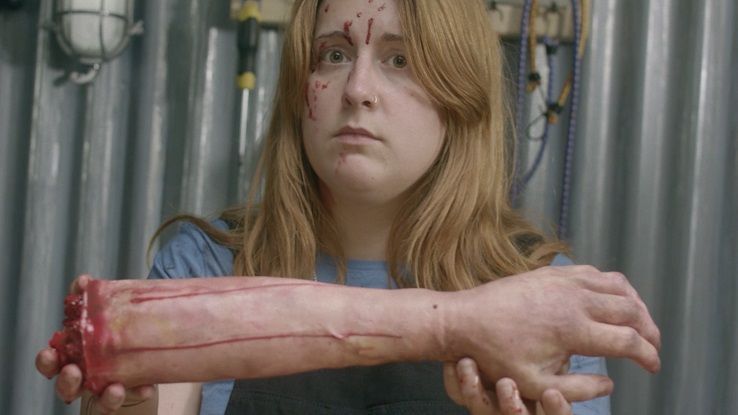
Staying with the nerdy stuff and the documentary Earthbound, USA follows the hardcore fanbase of the Japanese RPG Mother 2 and the trials and tribulations they face getting the rest of the franchise released in the West. Even if you don’t have much interest or knowledge of video games, Jazzy Boho’s documentary manages to draw you in thanks to the likeable interviewees and the passion that is clearly driving them. The film follows the personal lives of the fans as well, showing how Earthbound (as Mother 2 was known in the USA) brought them together and influenced all areas of their lives. It skims over a few of the darker practises of Nintendo, who have never been shy to send out a cease and desist or a lawsuit, but Earthbound, USA is far more interested in the impact that the game had.
And here we are. Four packed days of genre cinema comes to an end, and unfortunately, the organisers saved the worst until last. Despite roping in genre legends such as Tony Todd and Kane Hodder, as well as Sean Young, Nicolas Gyeney’s The Activated Man takes the worst aspects of 90s horror and crams them into two hours (although you could have told me it was three hours and I would have believed you).
Jamie Costa plays Ors Gabriel, who after losing his dog finds out that his psychic powers have been activated and that he must take on The Fedora Man (Edward Michael Scott) with help from his neighbour Jeffrey Bowman (Todd). It’s somehow more ridiculous than that brief synopsis suggests, with Costa’s CGI powers making him look like a psychic Power Ranger at times. It got plenty of laughs from the audience, but not because it was meant to be funny.
Matthew Tilt

